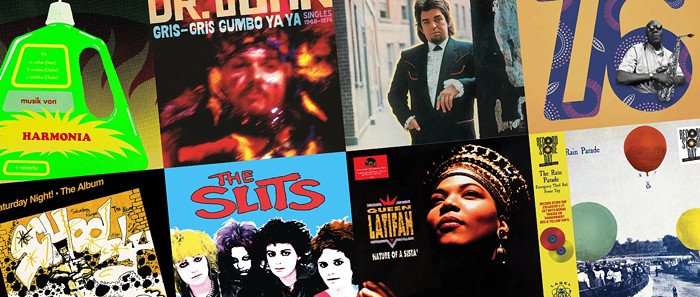The "white van speakers" scam is a time-honored hustle, perpetrated by smooth operators in cheaply leased delivery vans, wherein suckers believing themselves to be acquiring high-end audio equipment at cut-rate prices end up paying for subpar gear (or even empty boxes). But on his new compilation, White Van Music, out on indie-hop powerhouse Rhymesayers Entertainment, Seattle superproducer Jake One (born Jake Dutton) uses this iconic vehicle for the greater good; instead of unloading crap, he gives the starved-for-content hiphop consumers more than they bargained for. In a year dominated by major-label turds polished to a blinding studio sheen, Jake One has packed premium product into the unassuming, sturdy facade of classic underground boom-bap. Jake is a humble, down-to-earth dude—but he's also a venerated local institution and a nationally respected producer. He's made gutsy classics for local artists, hard underground joints for the underground's elite, and Michael Bay–big backdrops for 50 Cent and his G-Unit crew. And Jake One's unique situation as supplier to these disparate worlds has allowed him to produce one of the very best hiphop albums to drop in 2008—period.
That ultimate truth of this project is best exemplified by its lead single, appropriately called "The Truth," which features the hardcore flow of gold-selling Roc-A-Fella soldier Freeway. The track itself is gorgeous—the sort of solemn, soulful scorcher Free is well known to devour—but it takes on a whole new dimension when Jake artfully adds a verse from Rhymesayers firebrand Brother Ali. See, the real genius of WVM is its unprecedented mingling of rappers from the mainstream, MTV-beloved rap world (Busta Rhymes, Young Buck, Prodigy of Mobb Deep, Freeway) with MCs from the road-running, word-of-mouth-fed independent hiphop scene (MF Doom, Brother Ali, Slug of Atmosphere). "I haven't seen anybody do it to this degree," Jake says of the LP's ambitious mix of talent. "I can't even say it was all deliberate—really it all just came together naturally. I figured that if I was really going to do a record, I couldn't just do underground records or just do commercial records." No small feat—while indie-hop maintains a running commentary on the foibles of the mainstream, most diamond-draped rap luminaries are hardly aware of the hard-touring hiphop stars creating outside of the major labels.
"My manager [G-Unit's former behind-the-scenes mastermind Sha Money XL] wasn't hip to what [Rhymesayers] were doing, and he hit me the other day like, 'Who's that other guy rapping with Freeway? I think I like him, he's dope.' Now, will 50 hear it and sign Brother Ali?" Jake laughs. "Probably not, but who knows? It's always good to expose people to new stuff."
With all the marquee national talent (over- and underground alike) on White Van Music, it's easy—even for Jake himself—to downplay the album's significance to the local hiphop scene. "I can't really call it a Seattle album," he says, "even though, obviously, I'm on everything." Yet the album's versatility, its vision, its all-roads-end-here, jack-of-all-styles vibe is pure Seatown.
Of course it's a Seattle album—the cover shows Jake jumping out of the album's namesake vehicle in front of no less a local landmark than Dick's (you know, where the cool hang out), and among the album's very best moments are those featuring Seattle MCs. The atmospheric anthem "Big Homie Style," sports hungry young-gun verses from J.Pinder and GMK, and Sportn' Life Records' own Spaceman murders the track, gangland style. The Life's co-owner D.Black demonstrates his considerable breadth on "God Like," dropping heady theological bars sure to surprise those local ears who'd pigeonholed him as a gangsta rapper. "Those guys are like my little brothers, and they're excited about this record," Jake says. "People get to hear them that had no idea about them. And they held their own, too—they had to; I wasn't going put them on otherwise."
But it's album closer "Home"—featuring OGs Vitamin D, C Note (of Narkotik), Maine, and Ish (of Grammy-winning Digable Planets/Cherrywine fame)—that feels as familiar as a late-night Swisher run to the Cherry Street "Am-Pam." "That's basically my tribute to '90s Seattle hiphop," Jake says. The homage is unmistakable; the track's warm, twinkling vibe bears the signature of Vitamin D's classic style. "Vita's definitely a big part of this record," says Jake. Indeed, Seattle's most prolific producer/MC/DJ provided all the scratches and cuts on White Van Music—not to mention a decade-plus of inspiration.
Jake's album is not only the most important hiphop record to come out of the Northwest this year, it's the definitive statement of his considerable career, during which time he's seen the landscape of this town change, from its skyline to its appreciation for the art form to which he's dedicated his life. Back when he started making music in the mid-'90s, he says, "nobody was caring about this shit—it's just the truth. It was E-40 time." Seattle hiphoppers affected styles born in New York or Oakland, dealing with the same crises of identity and self-esteem that plague this city on every level. But after a generation of digesting influences, the town is beginning to recognize and love itself, and Seattle's hiphop today is at its best. "I think it's the biggest it's ever been. People come out to shows; there's a general level of interest that wasn't there before. Just seems like there's pride in the city." With the release of White Van Music, expect that pride to hit an all-time high in hiphop's last American frontier. Throw in a reunified vision of beats, rhymes, and life in general? Sounds like a hell of a deal to me. ![]()



















